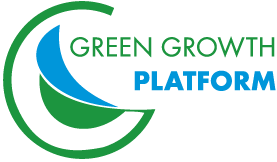
– PoliRural results and sustainability
As PoliRural draws to a close, it must grapple with one of the most difficult questions in EU projects: how to ensure long-term sustainability? There are different ways to define sustainability. We see it as post-project existence of PoliRural ideas, deliverables and know-how that immediate beneficiaries and the wider public use to achieve their goals. Some of them can be commercial, some policy related. Some may be technical, some scientific or societal. The nature of the exploitation is not so important. What matters is that results are continuously exploited by stakeholders for their own benefit, to help others, or both.
PoliRural’s main results are:
- A network of 500 stakeholders that have provided strong participatory foundation to the innovative foresight framework piloted in 12 regions;
- A foresight package outlining, for each region 1) a vision, 2) a set of measures that need to be implemented to make rural areas stronger, resilient, better connected, and prosperous, and 3) a roadmap for implementing these measures;
- A suitе of technical tools designed to support regional pilots with different foresight tasks e.g. exploring the impact of proposed measures on regional performance (Policy Options Explorer) and rural attractiveness (Rural Attractiveness Explorer), creating summaries of reading lists and extracting insightful information from them e.g. context, emotions (Semantic Explorer);
- A collection of reports, guidance documents and methodological notes that capture results of our work, as well as recommendations for others looking to implement regional foresight in a new geographic/thematic context.
– The results of the ex-durante report show benefit both for the planning process and pilots’ teams
The main task of the ex-durante evaluation was to document the progress made, review the involvement of primary stakeholders, and identify the first indications of intervention effects.
Ex-durante evaluation has provided each pilot with a closer, more critical in-depth look at their Action Plans. It has significantly benefited them, contributing to the quality of their proposed Action Plans and the PoliRural project in general.
Outstanding conclusions:
- The involvement of key decision-makers in the monitoring mechanisms of the Action Plan is seen as an essential precondition for securing the adoption and successful implementation of Action Plans by several pilot regions;
- Russian war in Ukraine and its consequences on energy, economy, environmental and social processes has been a new and very influential external factor that pilot regions faced during the reporting period. It has served as a valuable lesson demonstrating how quickly situations may change and that every plan shall be able to adapt and adjust its measures;
- The results of ex-durante evaluations confirm the positive effects of the evaluation process for the pilot teams. The most considerable effect is related to the analysis of stakeholder engagement, ownership, and capacity gains. Pilots have continued active communication with regional stakeholders involving them in discussions and experiments using tools developed by the PoliRural project. This has resulted in further improved Action Plans, new insights, the increased status of pilot organizations, and capacity gains among the pilot teams.
You can read more about PoliRural project final results on the following LINK.

